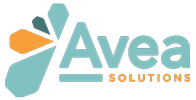NAATP has an excellent dedicated resource page and is constantly updating it with new information daily, including but not limited to the following:
Please listen to this very informative webinar with Bob Ferguson and Nanette Zumwalt, covering such topics as the following:
As Congress and the White House work on financial relief packages for businesses in America, substance-use disorder treatment facilities must not be left out. NAATP is asking for treatment facilities to contact your member of Congress to remind them of the essential role SUD treatment plays in American life and to ask that treatment facilities be included in the financial assistance package being developed.
Telehealth can be a means of addressing COVID-19 through patient monitoring, treating and limiting exposure to infection for vulnerable populations, and protecting healthcare workers. Not only can telehealth expand the reach of services to communities that have limited access to needed services, but it can also minimize exposure for both the health worker and patients who are at high risk of infection.
This guide covers important information to understand about COVID-19 and telehealth, including the following:
Best Practices for Telehealth billing in the context of COVID-19
These are unprecedented times, and it’s inspiring to see communities rising to the challenge. However, not everyone has the resources to “shelter in place,” especially the millions of people in the Supplemental Nutrition Assistance Program (SNAP). Expensify.org is going to temporarily redirect all of its charitable funds to Expensify.org/hunger. With its ability to reimburse volunteers directly in real time, Expensify.org is uniquely positioned to help families in need immediately.
This helpful guide covers mental health questions such as the following:
The MHA reports a 19 percent increase in anxiety over the past several weeks, and has compiled a range of resources on topics such as the following:

We are proud to do our part in supporting addiction and substance use disorder treatment facilities for the life saving work you do. Our mission is to help you get paid fully and quickly for the services you provide by bringing you revenue cycle management software that gives you full visibility into your financial operations, supports your teams with the tools they need to bill correctly and collect efficiently, and that offers you a sense of control over your business so you can spend more time with your patients – and less managing your claims and chasing payments.
9450 SW Gemini Dr
Suite 22100
Beaverton, OR 97008-7105